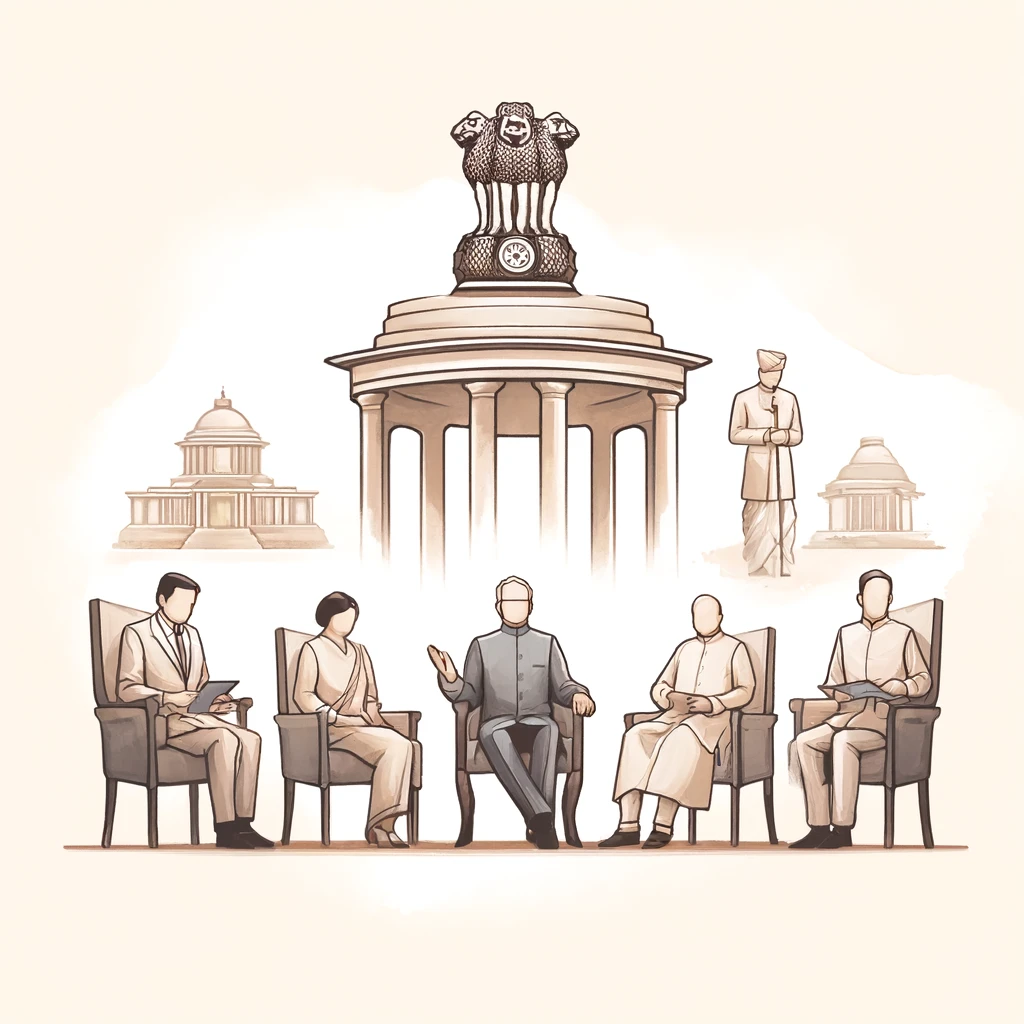The state legislature in India is a crucial component of the state government, responsible for enacting laws, scrutinizing the executive, and representing the interests of the public. This article explores the composition and functioning of state legislatures, focusing on bicameral and unicameral systems, the roles of legislative assemblies and councils, legislative processes, and the privileges of members.

Bicameral vs. Unicameral Legislatures: States with Two Houses and One House
Concept:
- Bicameral Legislature: A state legislature with two houses – the Legislative Assembly (Vidhan Sabha) and the Legislative Council (Vidhan Parishad).
- Unicameral Legislature: A state legislature with only one house – the Legislative Assembly.
States with Bicameral Legislatures:
- As of now, six states in India have a bicameral legislature: Andhra Pradesh, Bihar, Karnataka, Maharashtra, Telangana, and Uttar Pradesh.
- The Legislative Council acts as the upper house, providing a platform for seasoned politicians and experts to contribute to the legislative process.
States with Unicameral Legislatures:
- Most Indian states have a unicameral legislature, consisting solely of the Legislative Assembly.
- The absence of a second house means the legislative process is faster, but it also reduces the scope for detailed scrutiny and debate.

Composition of Legislative Assembly and Legislative Council
Legislative Assembly (Vidhan Sabha):
- Members: The number of members varies from state to state, depending on population and area. Members are directly elected by the people from single-member constituencies.
- Term: The Legislative Assembly has a term of five years, but it can be dissolved earlier by the Governor.
- Qualification: Members must be Indian citizens, at least 25 years old, and meet other eligibility criteria specified in the Representation of the People Act.
Legislative Council (Vidhan Parishad):
- Members: The number cannot exceed one-third of the total membership of the Legislative Assembly, but must be at least 40.
- Composition: Members are elected through various constituencies – one-third by members of local bodies, one-third by Legislative Assembly members, one-twelfth by graduates, one-twelfth by teachers, and the remaining are nominated by the Governor.
- Term: Members serve staggered six-year terms, with one-third retiring every two years.
- Qualification: Members must be Indian citizens, at least 30 years old, and meet other criteria similar to those for the Legislative Assembly.
Powers and Functions of State Legislature
Legislative Powers:
- Law-making: The primary function is to enact laws on subjects in the State List and Concurrent List of the Constitution.
- Budget Approval: The state legislature approves the state budget, which outlines revenue and expenditure for the financial year.
Executive Powers:
- Government Oversight: The legislature monitors the executive branch, ensuring accountability through questions, debates, and motions.
- Control over Council of Ministers: The Chief Minister and Council of Ministers are collectively responsible to the Legislative Assembly, which can remove them through a vote of no confidence.
Financial Powers:
- Financial Bills: The state legislature has exclusive power to approve money bills and financial bills related to state finances.
- Revenue and Expenditure Control: It controls state finances by authorizing taxes and overseeing government expenditure.
Judicial Powers:
- Impeachment: The state legislature can recommend the removal of judges of the High Court and other constitutional authorities.
- Redressal of Grievances: It addresses public grievances and ensures justice through legislative mechanisms.

Legislative Process at the State Level
Introduction of Bills:
- Ordinary Bills: Can be introduced in either the house of a bicameral legislature or in the Legislative Assembly in unicameral states.
- Money Bills: Must be introduced in the Legislative Assembly with the Governor’s recommendation.
Stages of a Bill:
- First Reading: Introduction of the bill and a brief outline of its objectives.
- Second Reading: Detailed examination and debate on the bill’s provisions.
- Committee Stage: Referral to a committee for further scrutiny and recommendations.
- Consideration and Passing: Clause-by-clause consideration, discussion on amendments, and voting.
- Approval by Second House: In bicameral states, the bill is sent to the Legislative Council, which can suggest amendments or delay it but cannot reject it.
- Governor’s Assent: The bill is sent to the Governor for assent. The Governor can give assent, withhold assent, return the bill for reconsideration, or reserve it for the President’s consideration.
Role of the Speaker and the Chairman in State Legislatures
Speaker of the Legislative Assembly:
- Presiding Officer: The Speaker presides over the sessions, ensuring order and decorum.
- Authority on Procedure: Decides on points of order and ensures compliance with rules and procedures.
- Casting Vote: In case of a tie, the speaker casts the deciding vote.
- Committee Appointments: Appoints members to various legislative committees.
Chairman of the Legislative Council:
- Presiding Officer: The Chairman presides over the sessions of the Legislative Council, maintaining order and decorum.
- Authority on Procedure: Similar to the Speaker, the Chairman decides on procedural issues and ensures adherence to legislative rules.
- Casting Vote: In case of a tie, the Chairman casts the deciding vote.
Privileges of Members of State Legislature
Freedom of Speech: Members enjoy freedom of speech in the legislature, allowing them to speak freely without fear of legal consequences.
Immunity from Arrest: Members cannot be arrested during sessions of the legislature and 40 days before and after a session, except in cases of treason, felony, or breach of peace.
Exemption from Jury Service: Members are exempt from serving on a jury or as witnesses in court during legislative sessions.
Access to Information: Members have the right to access government documents and information necessary for their legislative duties.
Conclusion
The state legislature, whether bicameral or unicameral, plays a crucial role in the governance and administration of states in India. Understanding its composition, powers, functions, and legislative process is essential for grasping the workings of state governments. The roles of the Speaker and the Chairman, along with the privileges enjoyed by members, ensure the effective functioning of the legislative body. This knowledge is particularly relevant for UPSC aspirants, as it forms a significant part of the polity syllabus and is essential for a comprehensive understanding of Indian governance.



